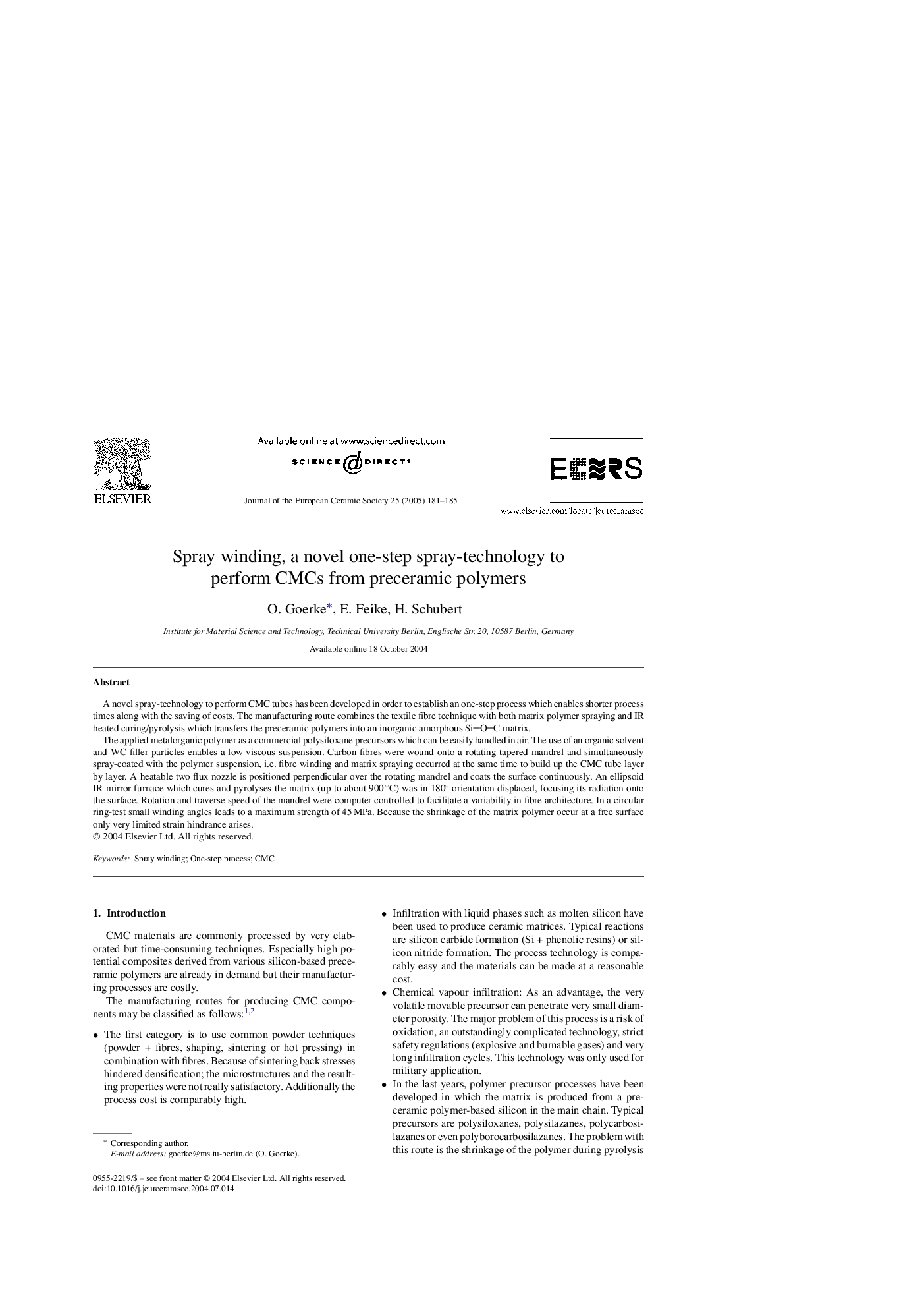| Article ID | Journal | Published Year | Pages | File Type |
|---|---|---|---|---|
| 9777949 | Journal of the European Ceramic Society | 2005 | 5 Pages |
Abstract
The applied metalorganic polymer as a commercial polysiloxane precursors which can be easily handled in air. The use of an organic solvent and WC-filler particles enables a low viscous suspension. Carbon fibres were wound onto a rotating tapered mandrel and simultaneously spray-coated with the polymer suspension, i.e. fibre winding and matrix spraying occurred at the same time to build up the CMC tube layer by layer. A heatable two flux nozzle is positioned perpendicular over the rotating mandrel and coats the surface continuously. An ellipsoid IR-mirror furnace which cures and pyrolyses the matrix (up to about 900 °C) was in 180° orientation displaced, focusing its radiation onto the surface. Rotation and traverse speed of the mandrel were computer controlled to facilitate a variability in fibre architecture. In a circular ring-test small winding angles leads to a maximum strength of 45 MPa. Because the shrinkage of the matrix polymer occur at a free surface only very limited strain hindrance arises.
Keywords
Related Topics
Physical Sciences and Engineering
Materials Science
Ceramics and Composites
Authors
O. Goerke, E. Feike, H. Schubert,
